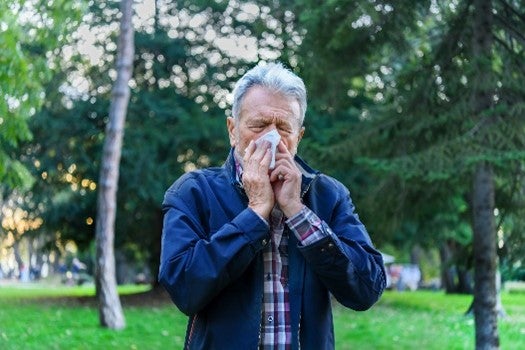Facts About Allergies You Should Know
Facts About Allergies You Should Know
Allergies are a common yet frequently misunderstood condition. Affecting millions worldwide, allergies vary significantly in their causes and severity. Understanding allergies is vital for effective management and prevention, from mild seasonal inconveniences to life-threatening reactions. Jupiter Sinus & Allergy explores what allergies are, provides key facts, and shares tips for managing this condition effectively.

What Are Allergies?
People experience allergies when the immune system negatively reacts to typically harmless substances as if they were dangerous invaders. These allergens can include pollen, pet dander, certain foods, insect venom, and more. For some, this immune response leads to mild symptoms like sneezing or itchy eyes, while for others, it can result in severe reactions like asthma or anaphylaxis. Although allergies have no permanent cure, effective treatments and preventive strategies can significantly improve quality of life.
Key Facts About Allergies
We understand allergies can be a hassle, but knowing more about them is important to fight back against the nuisance. Here are some interesting and important facts about allergies worth knowing:
- Rising Prevalence: Studies show that allergy cases are increasing globally. Skin allergies alone have jumped by over 50% in recent decades.
- Impact on Daily Life: Allergies cost the U.S. economy over $18 billion annually due to lost productivity and medical expenses.
- Wide Range of Allergens: From foods like peanuts and shellfish to pollen, mold, and medication, the list of allergens is extensive. Virtually anything can trigger an allergic reaction in someone.
- Allergies and Genetics: A family history of allergies or asthma increases the likelihood of developing similar conditions.
- Chronic Treatment Success Rates: Treatments like subcutaneous immunotherapy have an 85% success rate in reducing symptoms for those with allergic rhinitis.
Facts About Food Allergies
Food allergies are highly common and have symptoms ranging from mild to severe. The most common food allergens include wheat, tree nuts, milk, fish, eggs, peanuts, soy, and shellfish. Up to 8% of children and 4% of adults are estimated to have food allergies. They can develop at any age, even in individuals with no history of allergies.
Facts About Seasonal Allergies
Spring and early fall are typically peak seasons for seasonal allergies, although this can vary depending on local climates and plant life. Pollen from trees, grasses, and weeds cause seasonal allergies. Symptoms include sneezing, nasal congestion, itchy eyes, throat irritation, and fatigue. These can vary in severity based on pollen levels and individual sensitivity.
Symptoms of Allergies
Allergy symptoms can be as mild as sneezing or as severe as losing consciousness. Some of the most common allergy symptoms include:
- Respiratory Allergies: Sneezing, runny nose, nasal congestion, red/itchy eyes.
- Food Allergies: Hives, swelling of the lips or throat, stomach cramps, nausea.
- Skin Allergies: Patches of red, itchy, or flaking skin.
- Severe Allergies: Shortness of breath, rapid heartbeat, a drop in blood pressure, and possible loss of consciousness.
Causes and Risk Factors
Allergies develop when the immune system mistakenly identifies a harmless substance as a threat. The most common allergy causes and risk factors include:
- Genetics: A family history of allergies increases susceptibility.
- Environmental Exposure: Frequent exposure to certain allergens, like dust or pollen, can heighten risk over time.
- Underlying Conditions: Conditions like asthma often coexist with or worsen allergic reactions.
Effective Allergy Treatments
Managing allergies starts with identifying triggers and implementing an appropriate treatment plan. Our team will determine the most effective allergy treatment to fit your needs. Some of the best allergy treatment options include:
- Over-the-Counter Medications: Antihistamines, decongestants, and nasal sprays can relieve mild symptoms.
- Immunotherapy: Allergy shots or allergy drops offer long-term relief by desensitizing the immune system to specific allergens.
- Emergency Treatment: Anaphylaxis requires immediate administration of epinephrine followed by medical attention.
Tips for Managing and Preventing Allergies
While allergies can’t always be avoided, we can help you manage symptoms. Some tips to manage symptoms and prevent flare-ups include:
- Use a high-efficiency particulate air (HEPA) filter to help reduce allergens like pollen and pet dander in the air.
- Wash sheets weekly in hot water to kill dust mites.
- Stay indoors during peak pollen times.
- Wear sunglasses outdoors to prevent pollen from irritating your eyes.
- Always read ingredient labels and ask questions about food preparation.
- Carry an epinephrine injector if you have severe allergies.
Take Control of Your Allergies
Jupiter Sinus & Allergy is here to help you find lasting relief. Understanding allergies and their impact can help you better manage symptoms and enjoy a higher quality of life. Our specialists offer personalized treatment options to ensure optimal results. Schedule your consultation today to begin taking control of your allergies.
The information provided in this article is for informational and educational purposes only and does not constitute medical advice. It is not intended to diagnose, treat, cure, or prevent any disease or medical condition. Always seek the guidance of your physician or other qualified healthcare provider with any questions you may have regarding a medical condition or treatment.
Results may vary: Treatment outcomes and health experiences may differ based on individual medical history, condition severity, and response to care.
Emergency Notice: If you are experiencing a medical emergency, call 911 or seek immediate medical attention.


